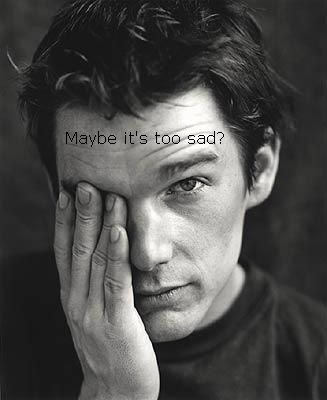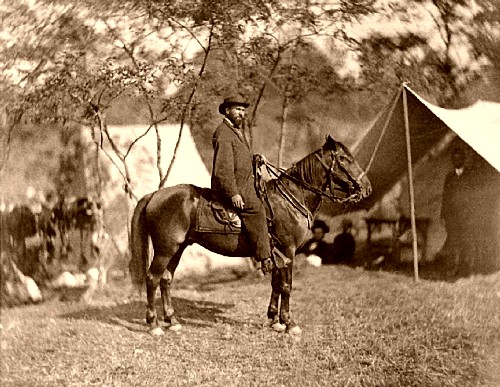Friday ‘Fuck Books Let’s Dance’ Thang
In case you never caught this’n, one of the earliest virals around, of a dude totally ripping new-brain dance shit in a youngins contest, well, please enjoy (the first two dancers are not the highlight: you will know when the One to See begins):
The strobe moves at the end is enough to make me say Barry Hannah who?
OK not really. But that kid rips. Let’s have a Friday night evening or something.
Odds are I’ll stay home. :)
Literary Cover Songs
Cover songs are fun, when bands you like do them, of bands you also like, or of bands you do not like that then become songs you like by bands you don’t like as interpreted by bands you like.
Here’s Fantomas doing Angelo Badalamenti’s ‘Twin Peaks: Fire Walk With Me’ from their album ‘The Director’s Cut,’ a record which I think was all I listened to for 6 months straight the year it came out, and is still one of the best ‘cover song’ explorations, using source to create something truly new, that I can think of.
It seems like the theory of a ‘cover song’ has been approached in fiction, though in a less on-your-face kind of way, more as a series of influences mostly, though there are certainly subjects that approach the more literal ‘cover song’ idea.
One that springs immediately to mind is Gordon Lish’s ‘For Rupert–With No Promises’ in the February 1977 issue of Esquire, which so successfully parodied J.D. Salinger that many thought it was Salinger himself.
So other than via methods of pure imitation or copying (as part of the great thing about covers is the reinterpretation), what are some other great examples that could reveal a ‘cover song’ in text form, or perhaps thoughts on ways that might not quite yet have been explored? Hra?
What are the 50 best poems on the web?
 The Dzanc Best of the Web is awesome and the Wigleaf thing is awesome and John Madera’s novella list is awesome but does poetry get short-shrift when it comes to these best-of lists? Is there a list for poetry? I can’t remember.
The Dzanc Best of the Web is awesome and the Wigleaf thing is awesome and John Madera’s novella list is awesome but does poetry get short-shrift when it comes to these best-of lists? Is there a list for poetry? I can’t remember.
In case there isn’t, put your favorite poems from last year in the comments.
Update: The Western Canon, Again

Does anyone remember that about a month ago I announced that I was putting my reading of Bloom’s The Western Canon on hold so I could read Dickens’s Bleak House before reading the chapter on Bleak House, because I didn’t want the plot spoiled by Bloom’s criticism? Well, I finished Bleak House on Monday, and yesterday I got to read my Bloom chapter. You know what? It was all worth it–the novel was, and the chapter was, and the reading the novel before reading the chapter absolutely was. I just couldn’t be happier with the sequence of decisions and actions that has led me to this place. Next up in The Western Canon, we learn about Ibsen. Tally ho!
B o o k l y f e :: Stretch Edition
-
 Appropriate.
Appropriate.
Jeff Vandermeer, friend to all, shares the journey of his book Finch, from inception to interior layout. I think Jeff is remarkable; he’s prolific AND he spends a lot of time on the internet.
I really look forward to this: The Interview Project, from David Lynch.
A profile of the man who created the much-emulated cliché ‘Hollywood Agent Type’, Irving Lazar.
An interview with William Gass. This one’s so full of good. An excerpt:
As for youthfulness: I value experimentation. In that area I am one of the youngest writers now writing. I smile when I see all these old young people still treating a sentence as if it had been a child of Dick and Jane. A sermon of Donne’s often has more ideas, more energy, certainly more art, than these writer’s entire books. And the meters of Sir Thomas Browne are confounding and should astonish everyone. Age is not a function of time but of mind, the old old old saying goes. Try a novel by the great Spanish writer, Juan Goytisolo. He’ll measure how young you are, not the New Yorker. I recently had to do a retrospective piece. It was a horrible experience. Don’t look back; complete immobility may be gaining on you.
More stuff after the jump.
Slate Presents: What Your Favorite Grateful Dead Song Says About You
As I’m occasionally forced to point out to the otherwise-savvy HTMLGiant readership, the Grateful Dead are awesome, and anyone who doesn’t understand that should be put to shame. (Some people don’t understand why they’re awesome, which is a different story; you should ask me to explain it to you some time.) Today, Slate helps us celebrate the band’s much-belated laureling by having John Swansburg offer a run-down of what your favorite GD tune says about who you are, and what your corresponding yearbook quote is/was/will be. Here are a few of my favorites. Click through anywhere for the full article.
“Wharf Rat”: Back when you were in grad school at Cornell finishing up the coursework for your literature Ph.D., you had this great riff about how the structure of “Wharf Rat” mimicked that of Coleridge’s “Rime of the Ancient Mariner”—an unreliable narrator relaying a tragic tale through a second, ostensibly reliable narrative voice. At this point, your buddies typically ducked out, ostensibly to pick up another sixer of Genesee.
Yearbook quote: “I got no dime, but I got time to hear his story.”
Yearbook quote: “My landscape would be empty if you were gone.”
It should go without saying, but you are all heartily encouraged to name your own favorite Grateful Dead songs, and corresponding descriptions and quotes, in the comments thread. Mine is probably their cover of Buddy Holly’s “Not Fade Away.”
Literary Lessons from Metal Magazines: Rumpelstiltskin Grinder

This is a band called Rumpelstiltskin Grinder
Rumpelstitskin is one of my favorite fairy tales. (Click here to have some guy read it to you.) It made me sad as a child- I felt so sorry for Rumpelstiltskin. I would be haunted by his misfortune after reading the story. I had no feelings for the girl. Hm. Theories exist claiming it is an anti-semitic tale. Regardless, as we can still read Pound and Hemingway even though they were crazy anti-semites, I still can read Rumpelstitskin with the great pleasure of compassion it stirs in me. Click here for some very funny “new’ uses of the word Rumpelstiltskin. Click here to read the story itself- it takes a few minutes. And click here to learn about the metal band, Rumpelstitskin Grinder.
Op-ed: End the University as We Know It

In the NYT today, Mark C. Taylor (no relation), the chair of the religion department at Columbia, argues that “GRADUATE education is the Detroit of higher learning.” He outlines a six-point plan for restructuring how graduate (and, later, undergraduate) educational institutions are structured and how they operate. He makes a number of good points–and a few I’m ambivalent about–but here’s one that especially resonated with me:
The dirty secret of higher education is that without underpaid graduate students to help in laboratories and with teaching, universities couldn’t conduct research or even instruct their growing undergraduate populations. […] In other words, young people enroll in graduate programs, work hard for subsistence pay and assume huge debt burdens, all because of the illusory promise of faculty appointments. But their economical presence, coupled with the intransigence of tenure, ensures that there will always be too many candidates for too few openings.
He’s talking about the more traditional kind of academic, but I think the point is a salient one for MFAs and other creative degrees as well. The idea that all, or even most, of the people who specialize in a creative discipline will then be in a position to make any sort of living at the practice of that discipline is at best a willful delusion, and at worst a pernicious lie.
Interlude

Let’s take a moment away from literature for this sentence from The Guardian:
Astronomers searching for the building blocks of life in a giant dust cloud at the heart of the Milky Way have concluded that it tastes vaguely of raspberries.
And without even trying, the universe has defeated almost all poetry.
(Turned on to this link by Charles Mudede at The Stranger.)


